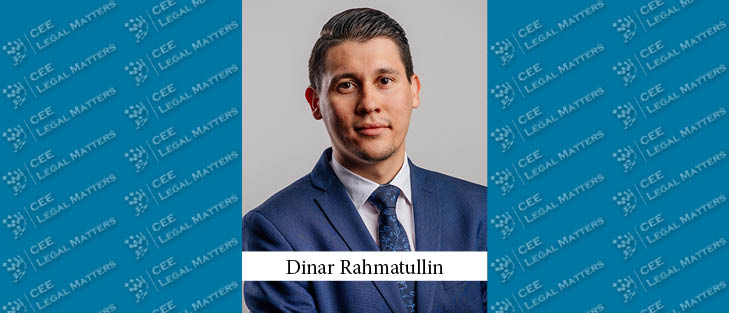Slovenia’s real estate market is thriving, with robust foreign and domestic investments. Key legal and industrial shifts such as new work-life balance laws and reforms in the energy and healthcare sectors are reshaping its economic landscape, according to Krizanec & Partners Partner Dinar Rahmatullin.
"The real estate market in Slovenia is currently very dynamic, encompassing a broad range of deals that span from smaller investments to significant transactions," Rahmatullin says. "These involve both commercial and residential properties, and publicly available data shows that most of the investment activity, particularly for larger deals, is centered in Ljubljana. Transactions include existing buildings, as well as new developments. Notably, Slovenia's largest real estate projects are heavily backed by foreign investment, primarily from Slovak, Czech, Hungarian, and recently Ukrainian investors, although domestic interest remains strong as well. This level of activity reflects solid confidence in the Slovenian market."
A significant legal development that's generating buzz at the moment in Slovenia, according to Rahmatullin, is the "recent amendment to Slovenia's Employment Relationships Act, adopted last year. This amendment is related to the right to disconnect, which requires employers to respect employees' free time and avoid interrupting them during non-working hours, whether on vacation, during sick leave, or otherwise," he notes. "Slovenian employers have until November 16 to implement these measures effectively, not just on paper but in practice. Slovenia has been at the forefront of work-life balance initiatives, making these changes highly relevant to employment and HR discussions."
In the litigation sphere, "consumer protection remains a key focus for Slovenia's legal community," Rahmatullin points out. "Ongoing lawsuits related to Swiss franc loans and ‘zero-floor clauses’ are generating significant attention." He adds that recently "Slovenia witnessed its largest compensation claim in history, valued at EUR 78 million against the former management of Adria Airways. This landmark case is anticipated to impact Slovenian case law significantly and bring into focus issues of corporate liability."
Looking at industry sectors, Rahmatullin highlights that three areas stand out: energy, automotive, and healthcare. "Slovenia's energy sector is undergoing a transformative period, with a shift toward renewable energy sources, debates on nuclear power operations, and interest in hydroelectric projects and energy storage solutions. While the government has introduced new policies aimed at sustainability, some have been criticized as impractical, and the effectiveness of these policies will require close monitoring into 2025."
In the automotive sector, Rahmatullin says "challenges persist, with recent announcements of German factory closures expected to accelerate the ongoing crisis. Given that the automotive industry contributes around 10% of Slovenia's GDP, the economic impact of these closures and the anticipated layoffs could be profound."
Finally, Rahmatullin draws attention to healthcare as another sector experiencing reform. "The government’s goal is to create a universally accessible public healthcare system and improve working conditions for healthcare professionals," he explains. "From a legal perspective, the reforms touch on fundamental rights, and it’s critical to resolve issues related to workforce shortages, accountability, wage disparities, and compliance standards. With an approaching imminent need for reform, the question remains how effectively Slovenia will implement these changes." Additionally, "there are upcoming regulatory updates concerning employees working across both public and private healthcare sectors, which will need to be addressed thoroughly," Rahmatullin concludes.
















